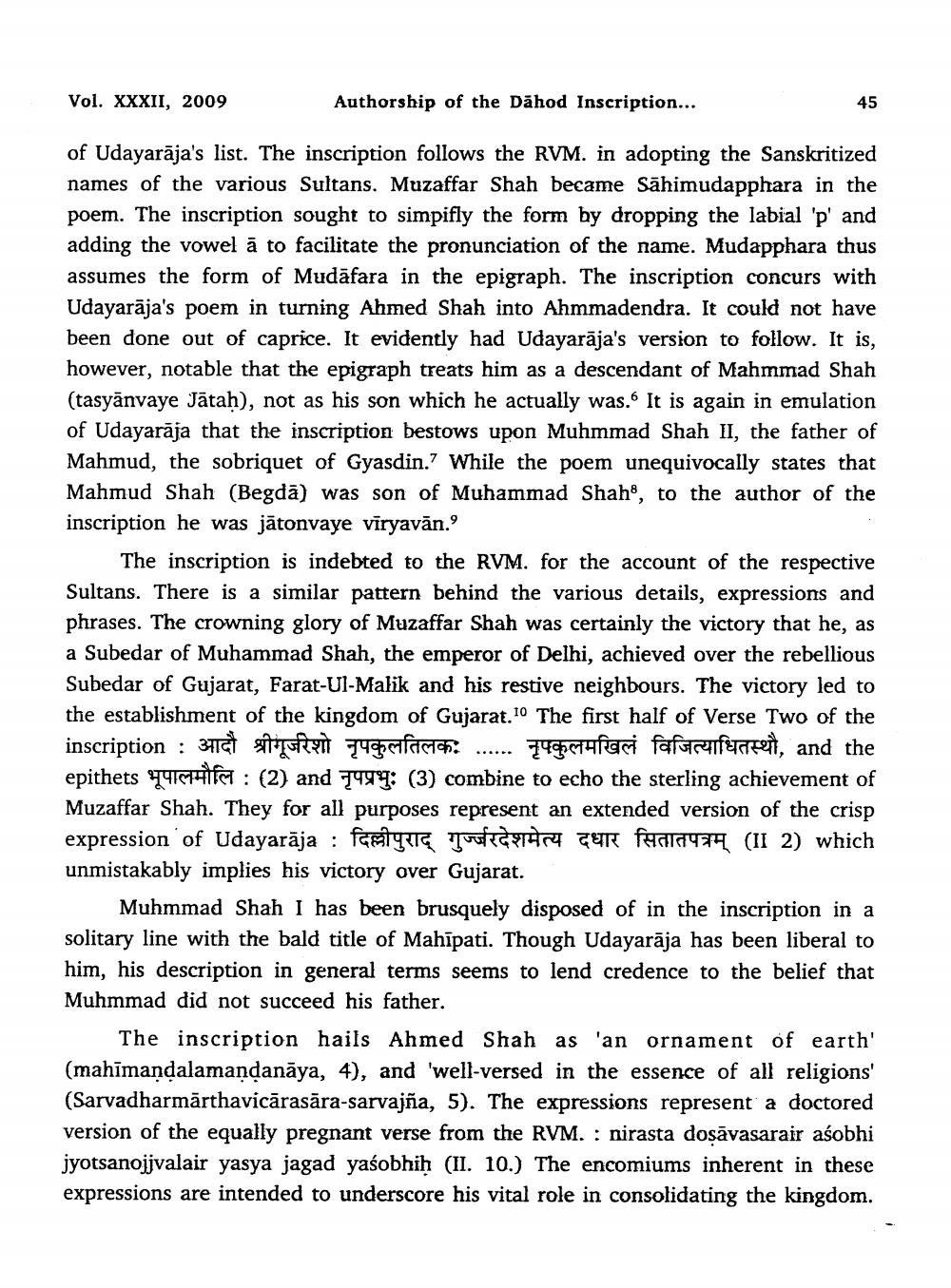________________
Vol. XXXII, 2009
Authorship of the Dahod Inscription...
of Udayaraja's list. The inscription follows the RVM. in adopting the Sanskritized names of the various Sultans. Muzaffar Shah became Sahimudapphara in the poem. The inscription sought to simpifly the form by dropping the labial 'p' and adding the vowel a to facilitate the pronunciation of the name. Mudapphara thus assumes the form of Mudāfara in the epigraph. The inscription concurs with Udayaraja's poem in turning Ahmed Shah into Ahmmadendra. It could not have been done out of caprice. It evidently had Udayaraja's version to follow. It is, however, notable that the epigraph treats him as a descendant of Mahmmad Shah (tasyānvaye Jātaḥ), not as his son which he actually was. It is again in emulation of Udayaraja that the inscription bestows upon Muhmmad Shah II, the father of Mahmud, the sobriquet of Gyasdin.' While the poem unequivocally states that Mahmud Shah (Begdā) was son of Muhammad Shah, to the author of the inscription he was jātonvaye viryavān.'
45
The inscription is indebted to the RVM. for the account of the respective Sultans. There is a similar pattern behind the various details, expressions and phrases. The crowning glory of Muzaffar Shah was certainly the victory that he, as a Subedar of Muhammad Shah, the emperor of Delhi, achieved over the rebellious Subedar of Gujarat, Farat-Ul-Malik and his restive neighbours. The victory led to the establishment of the kingdom of Gujarat.10 The first half of Verse Two of the inscription : आदौ श्रीगजरेशो नृपकुलतिलकः नृपकुलमखिलं विजित्याधितस्थौ, and the epithets भूपालमौलि : ( 2 ) and नृपप्रभु: (3) combine to echo the sterling achievement of Muzaffar Shah. They for all purposes represent an extended version of the crisp expression of Udayarāja : दिल्लीपुराद् गुर्ज्जरदेशमेत्य दधार सितातपत्रम् ( II 2) which unmistakably implies his victory over Gujarat.
******
Muhmmad Shah I has been brusquely disposed of in the inscription in a solitary line with the bald title of Mahipati. Though Udayarāja has been liberal to him, his description in general terms seems to lend credence to the belief that Muhmmad did not succeed his father.
The inscription hails Ahmed Shah as 'an ornament of earth' (mahīmandalamaṇḍanāya, 4), and 'well-versed in the essence of all religions' (Sarvadharmarthavicārasāra-sarvajña, 5). The expressions represent a doctored version of the equally pregnant verse from the RVM. : nirasta doṣāvasarair aśobhi jyotsanojjvalair yasya jagad yaśobhiḥ (II. 10.) The encomiums inherent in these expressions are intended to underscore his vital role in consolidating the kingdom.




